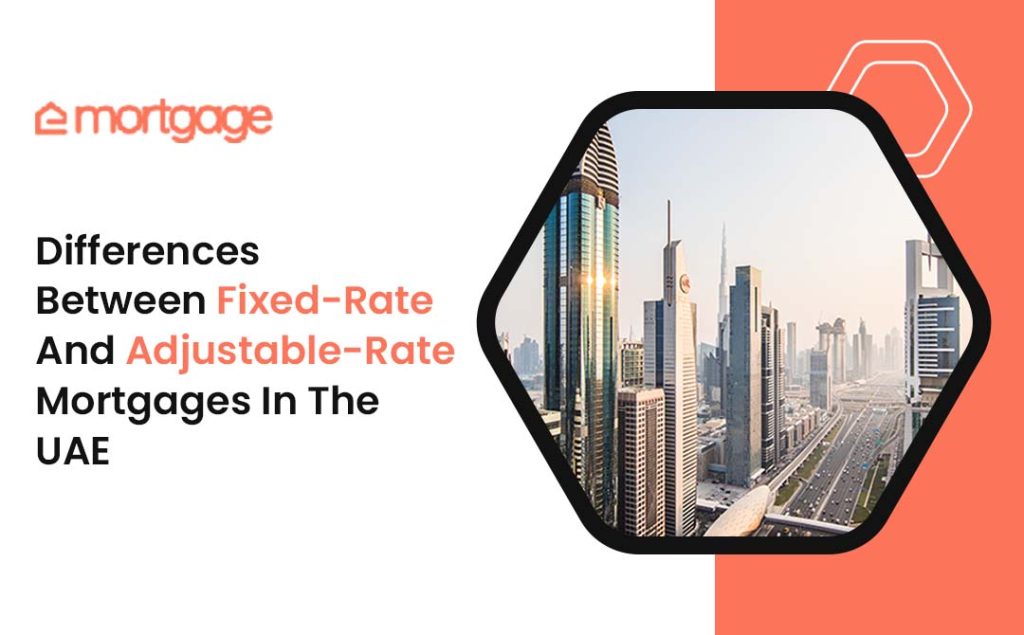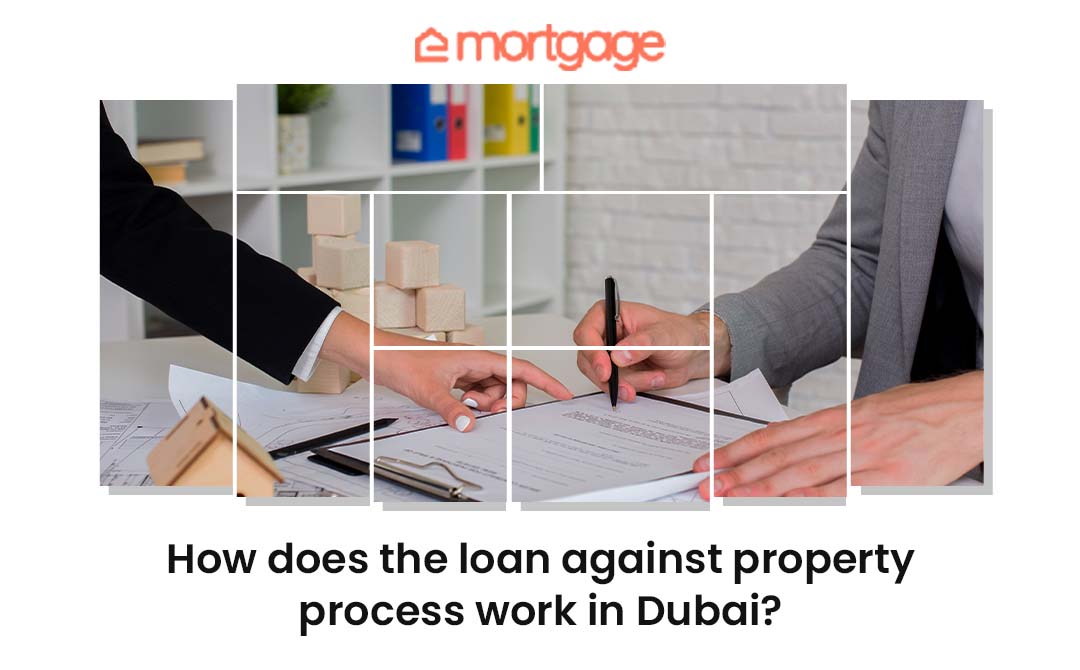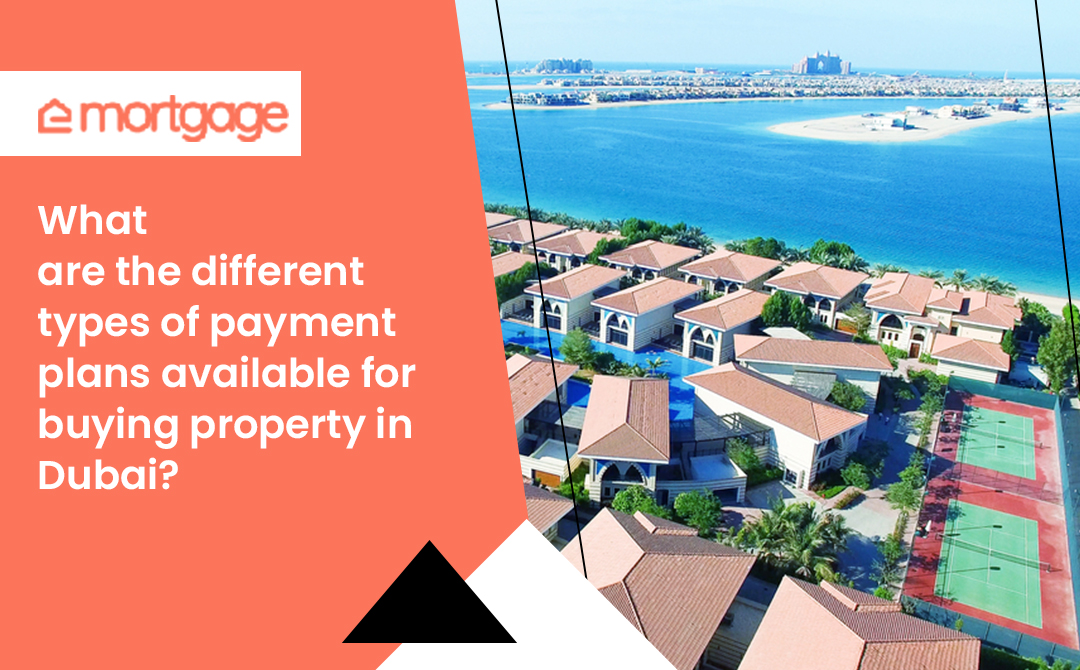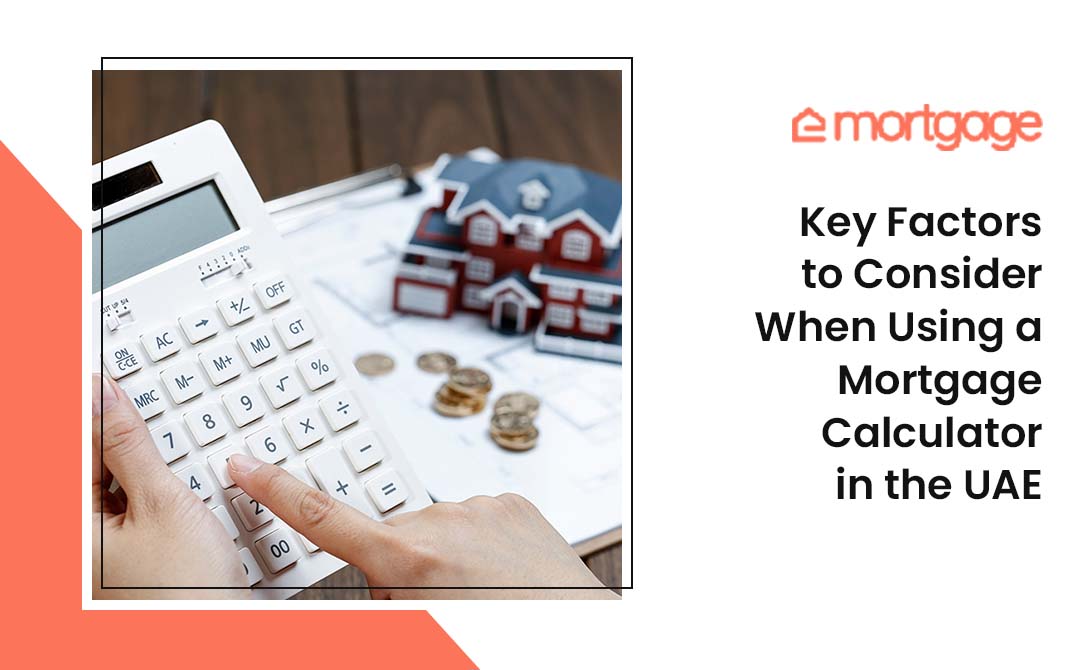In the vibrant landscape of the UAE’s real estate sector, the choice between different mortgage types is crucial. Mortgages in the UAE have evolved significantly, offering potential homeowners a myriad of options.
However, every homeowner must make a fundamental decision to choose between fixed-rate and adjustable-rate mortgages. Before delving deeper, it’s essential to understand what mortgages are and the role of various entities in shaping them.
At their core, mortgages are essentially loans provided by financial institutions or mortgage lenders that allow individuals to buy property. These loans are then paid back over a set period of time. Your credit profile, which includes data from your bank statements, previous loan records, and more, plays a pivotal role in the application process. The healthier your credit profile, the better mortgage terms you might be offered.
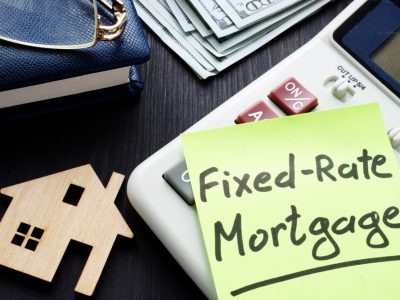
What Is A Fixed-Rate Mortgage?
A fixed-rate mortgage is straightforward. The interest rate set during the initiation of the loan remains constant throughout its life span. This means your monthly payments will be predictable for the entire term of the loan. It offers a sense of security, especially in an ever-fluctuating economic environment.
The exact terms of these mortgages can be found in the loan documents, and the structure of the loan program can vary slightly based on the lender. Your credit score plays a crucial role here; individuals with higher scores may get more favourable rates.
What Are Adjustable Rate Mortgages?
An adjustable-rate mortgage (ARM), sometimes known as a variable-rate mortgage, is a type of home loan where the interest rate can change over time. Unlike a fixed-rate mortgage, where the interest rate remains the same throughout the entire term of the loan, the interest rate on an ARM is typically fixed for an initial period and then fluctuates in accordance with a specific benchmark or index plus an additional spread, known as an ARM margin.
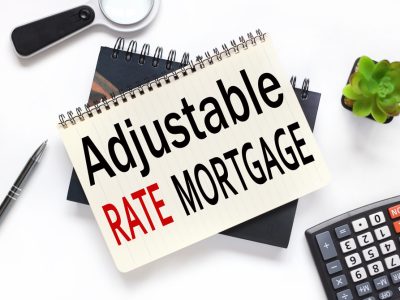
Decision Making: Factors to Consider
- Duration of Stay: If you plan to live in your home for a short period of time, an adjustable-rate mortgage might be more economical due to its potentially lower initial rates. However, for long-term residency, the stability of a fixed rate might be more suitable.
- Current and Future Financial Stability: Consider your present cash flow and potential future earnings. If your financial situation is stable and you expect it to remain so, you might handle the potential rate increases of a variable mortgage. If uncertain, the predictability of fixed rates can be comforting.
- Market Predictions: While no one can predict the future, understanding where experts believe the market interest rate is heading can be beneficial. If rates are expected to rise significantly, locking in a current fixed rate could save money in the long run.
- Risk Tolerance: Your comfort level with taking financial risks is a significant factor. If you prefer knowing exactly what your mortgage payment will be each month, a fixed-rate mortgage could be the better choice. If you’re comfortable with the risk of potential payment increases in exchange for the chance of payment decreases, an adjustable-rate mortgage could be worth considering.
- Loan’s Term: The term of the loan can also influence your decision. An adjustable-rate mortgage may be more attractive for shorter-term loans as the initial interest rate will typically be lower. For longer-term loans, the stability of a fixed rate is often more appealing.
Fixed vs. Adjustable: The Core Differences
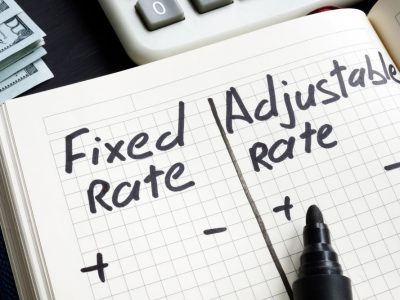
The fundamental difference between fixed-rate and adjustable-rate mortgages lies in the predictability of monthly payments. With a fixed-rate mortgage, homeowners can expect to pay the same amount each month for the entire term of their loan. This provides a sense of stability and financial planning for homeowners.
On the other hand, adjustable-rate mortgages offer flexibility in terms of interest rate changes. Depending on market conditions, the interest rate on an ARM can be adjusted either up or down. This means that homeowners with ARMs may see their monthly payments fluctuate, making it challenging to budget and plan for expenses.
Which Mortgage is Better?
The answer to this question depends on various factors, including your financial situation, risk tolerance, and future plans. Here are some critical points to consider:
- Fixed-rate mortgages are great for those who prefer stability and predictability in their monthly payments. If you plan on staying in your home for a long time or have a fixed income, a fixed-rate mortgage may be the better option.
- Adjustable-rate mortgages can offer lower initial interest rates but come with the risk of fluctuating payments. If you plan on selling your home or refinancing within a few years, an ARM may be better.
It’s essential to compare the interest rates and terms offered by different lenders before making a decision. Additionally, consider factors such as closing costs, prepayment penalties, and any other fees associated with the loan.
Associated Costs and Financial Responsibilities
Mortgages come with a plethora of associated costs and responsibilities that potential homeowners must be aware of:
- Closing Costs: These are the fees and expenses, aside from the property’s price, paid at the closing of a real estate transaction. While the type of mortgage can influence them, they’re also affected by property value and location.
- Insurance and Taxes: Both homeowners insurance and property taxes are often not included in the quoted mortgage payment, so they’re crucial to budget for.
— Insurance: You’ll need to consider both the insurance premiums and the coverage type. Remember, the better your credit profile, the better rates you can secure.
— Taxes: Property taxes can fluctuate based on location and property value. - Yearly Costs: Outside of the principal and interest, homeowners should budget for yearly costs, including maintenance, utilities, and potential homeowner association fees.
Understanding the Role of Financial Institutions
- Mortgage Lenders vs. Traditional Banks: While banks are the most recognized financial institutions, various mortgage lenders in the UAE specialize solely in home loans. Just like traditional banks and specialized mortgage lenders, eMortgage is a viable option that prospective homeowners in the UAE should consider, as they provide competitive rates and a streamlined application process, all from the comfort of your home.
- Documents and Terms: Whether you opt for a fixed-rate loan or explore the realm of variable-rate mortgages, be prepared to dive deep into loan documents. These papers outline crucial details like your loan terms, loan program, and any penalties for early repayment.
Conclusion
In conclusion, the choice between a fixed-rate and adjustable-rate mortgage in the UAE depends greatly on your financial circumstances, risk tolerance, and long-term plans. eMortgages streamline the application and approval process, offering potential homeowners the opportunity to compare rates, terms, and fees from various lenders all in one place. While bringing an added layer of flexibility and ease, prospective homebuyers must remain vigilant about the terms and conditions of their loan.
In all, both fixed and adjustable-rate mortgages have their advantages and drawbacks. It’s essential to understand the conditions and responsibilities associated with each and the additional costs like closing fees, insurance, taxes, and maintenance. A well-informed decision can help you secure your dream home while ensuring financial sustainability for the future.

